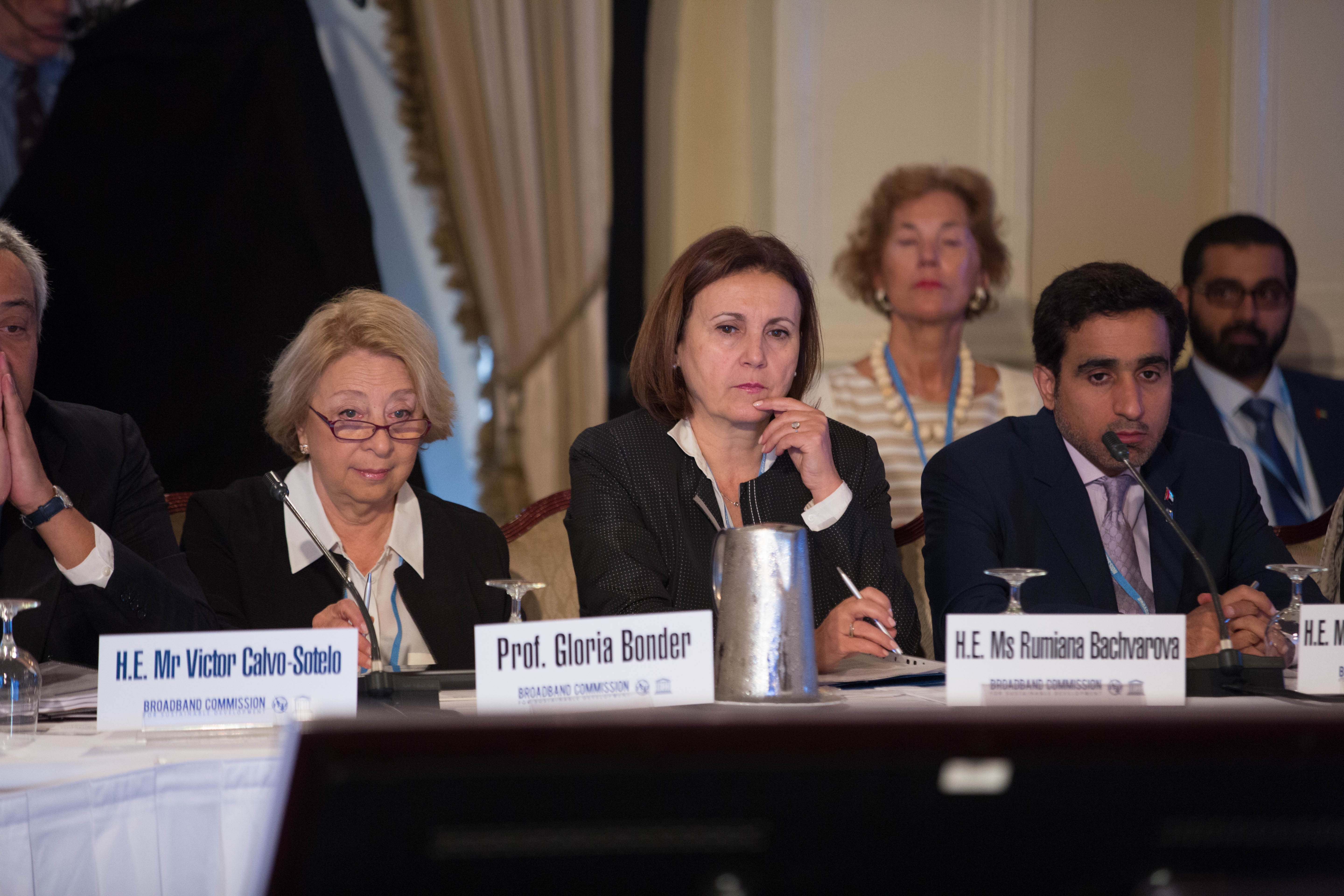GenderInSITE's Gloria Bonder brings a gender lens to the Broadband Commission for Sustainable Development

On September 26, GenderInSITE regional focal point for Latin America and the Caribbean, Gloria Bonder, attended the first meeting of the ITU/UNESCO Broadband Commission for Sustainable Development in New York as one of the new commission's 48 members. The meeting, which coincided with the adoption by the United Nations of the Sustainable Development Goals (SDGs), marked a shift in focus for the five-year-old Broadband Commission for Digital Development; the Commission for Sustainable Development will specifically address ways in which broadband technologies can contribute to the achievement of the 17 SDGs.
The Broadband Commission was formed in May 2010 with the goal of promoting inclusive broadband access worldwide in support of the SDG's predecessors, the Millennium Development Goals. Comprising national and international policymakers, industry and academic leaders and other stakeholders, Commission members identify best policy practices at various levels to bring greater access to diverse end-users, particularly in the developing world and in underserved communities, and make recommendations for strategic investments in designated policy areas. In 2013, a specific gender focus was introduced with the addition of a fifth target to the previously identified four targets:
- Making broadband policy universal
- Making broadband affordable
- Connecting homes to broadband
- Getting people online
- Achieving gender equality in access to broadband by 2020
The Commission's 2015 State of Broadband report, released shortly before the meeting and available for download below, provides an analysis of broadband access across 160 economies. While worldwide, the number of households with Internet access has increased from 31.5% to over 34.1%, the report notes that women and girls often have more restricted access to ICTs than boys and men, particularly in developing countries. Furthermore, even when they do have access, rigid gender roles and other cultural barriers as well as lack of appropriate training in use of ICTs may prevent them from obtaining the full benefits of the technologies.
A separate report released by the Commission, Cyber Violence Against Women and Girls, looks at the risks to women and girls from online technologies, from cyber-bullying to widely visible sexual harassment to physical threats to women's safety. It catalogs new forms of cyber-violence and underlines the need for prudent action on the part of policymakers, internet companies and regulators, and other leaders to minimize these risks. Download the full report below.
[box type="download" align="alignleft" ]
Broadband Commission for Sustainable Development's 2015 State of Broadband report
Broadband Commission for Sustainable Development's Cyber Violence Against Women report[/box]



